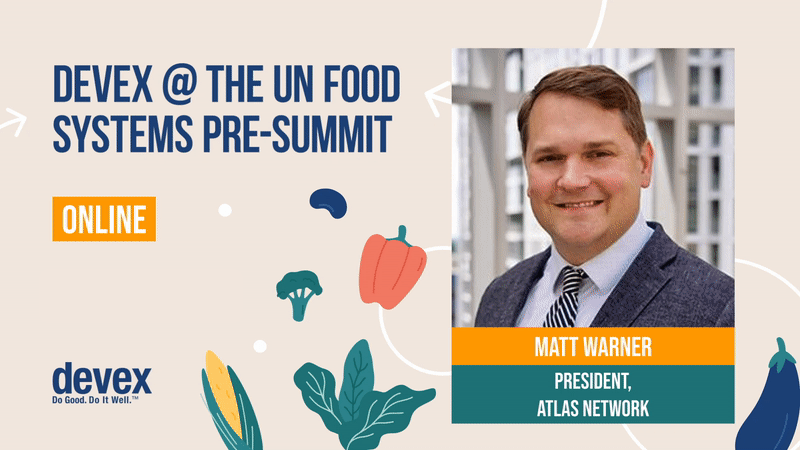
As part of the U.N. Food Systems Pre-summit, Atlas Network and its partner organization Center for Indonesian Policy Studies (CIPS) joined the Devex team to explain how markets and trade can improve access to food and revolutionize the effort against poverty, especially when paired with Atlas Network’s model of local problem-solving. Facilitated by Amruta Byatnal—associate editor with Devex—the Breaking Down Barriers: Facilitating Trade in Indonesia’s Food Sector segment of the program included Atlas Network president Matt Warner and CIPS head of research Felippa Amanta.
Amanta discussed the difficult position of Indonesians as they pay more than the international average for food staples like rice and nutritional essentials like meat and fruit. These higher prices are caused by trade restrictions, but most people are simply unaware of the downstream effect of these policies. To educate policymakers and raise awareness among everyday Indonesians, CIPS has set up a price comparison index—called the “Right to Affordable Food” project—showing how much more Indonesians pay for certain essential food products due to a lack of trade. This facts-based approach sidesteps the emotionally and politically charged nationalist rhetoric that fuels much of the support for limiting trade.
As a part of this project, Center for Indonesian Policy Studies also researched the best way to reach the people they seek to help. They found that relatability, reach, and consistency were the three most important factors in building a message that resonated. By addressing real problems their audience faced, utilizing innovative messaging techniques through social media, and staying on point with their content campaign, CIPS built a far-reaching and effective movement to reform trade restrictions. So far they have gained over 13,000 signatures for their petition to that effect.
This bottom-up approach empowers individuals to work for change and mirrors Atlas Network’s approach to international development. Rather than importing outside solutions, the Doing Development Differently model builds human dignity and encourages local innovation, as Matt Warner explained. It is important to support trade, he said, but learning from and supporting local voices is far more effective than the mainstream foreign aid model.